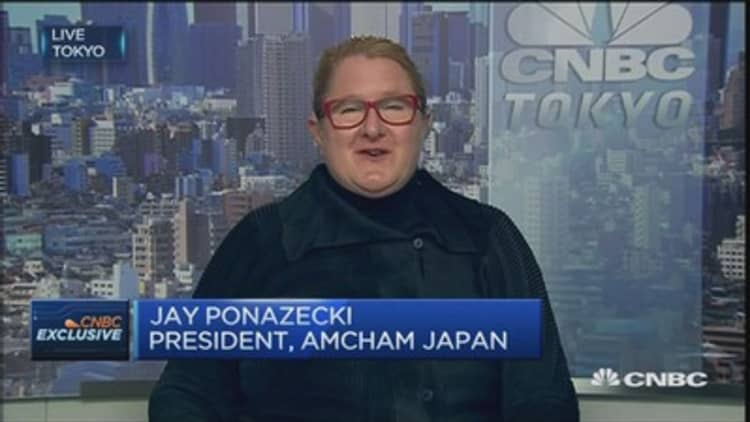Japanese Prime Minister Shinzo Abe is likely breathing a huge sigh of relief following the conclusion of the Trans-Pacific Partnership (TPP) negotiations earlier this week.
The sweeping free-trade pact, which encompasses 40 percent of the world economy, is expected to shake up Japan's traditionally insular business world by opening the door to foreign investments and more nimble rivals, analysts say. Abenomics – the leader's three-pronged economic revival strategy that has lost much of its earlier steam, could thus get a boost.
"After a period in which the promise of Abenomics had been looking tarnished, successful conclusion of the talks is a major achievement for Prime Minister Abe and raises hopes that his 'Third Arrow' efforts to raise productivity growth stand some chance of succeeding," said Marcel Thieliant, economist at Capital Economics.

"Japan stands to benefit more than most from higher inward FDI [foreign direct investment] given the very low existing presence of foreign firms in the country. Perhaps most significantly, the wider economy should benefit as previously protected sectors are exposed to competition," he said.
If approved, the TPP would remove trade barriers and establish common labor, environment, and legal standards among a dozen participating Pacific Rim countries: Australia, Brunei, Canada, Chile, Japan, Malaysia, Mexico, New Zealand, Peru, Singapore and Vietnam. The deal must now be signed formally by the countries' leaders and ratified by their legislatures.
"The more important focus of the TPP is on removing non-tariff barriers and those relating to regulation, government procurement and state-owned enterprises," said Thieliant.
The TPP has been a contentious issue in Japan, with Abe facing resistance from the country's powerful farm lobby over deregulation of the highly protected agriculture sector.
In an effort to diffuse the backlash, Abe on Tuesday announced plans to set up a task force to help Japan's farms adjust to the TPP, which reduces tariffs on products such as imported pork and beef.
Read MoreTPP: Why it's too early to pop the champagne
"Let's not see the TPP as a threat. We want to give as much support as possible to those who see an opportunity in the TPP and choose to compete in the global market," Abe said during a news conference, according to the Wall Street Journal.
Jay Ponazecki, president at the American Chamber of Commerce in Japan, which represents the interests of U.S. businesses in the country, says the trade pact is a welcome development for members of the organization.
"Our members are certainly very pleased to learn about the conclusion of the negotiations after five years," Ponazecki said.
"TPP has been touted by the Prime Minister as being such a core component of his economic reforms and provides the foundation with which to implement even further reforms. So we're quite positive in that regard," she said.


